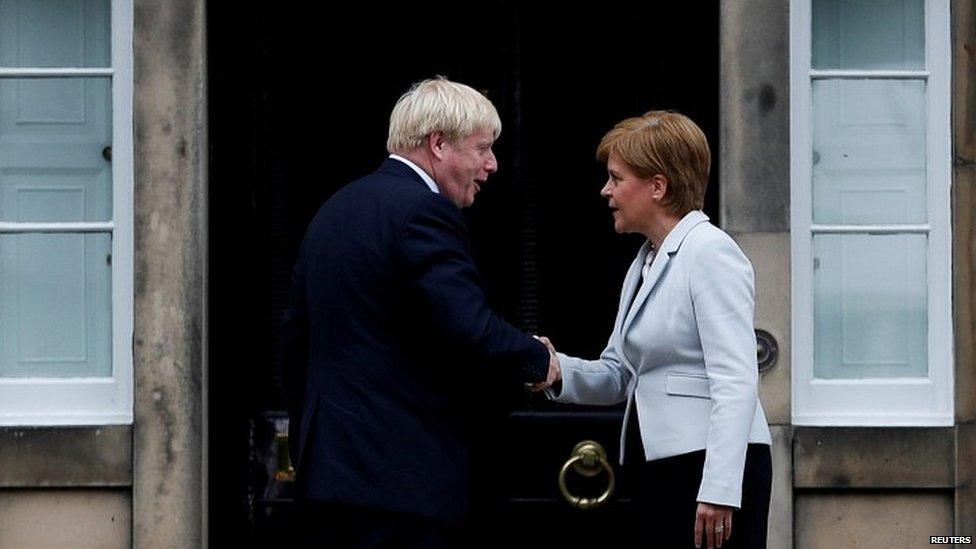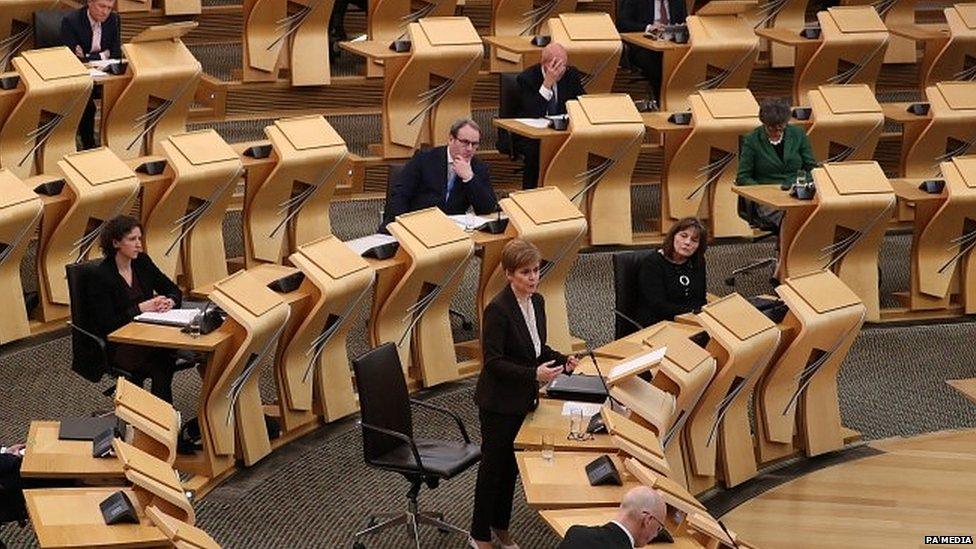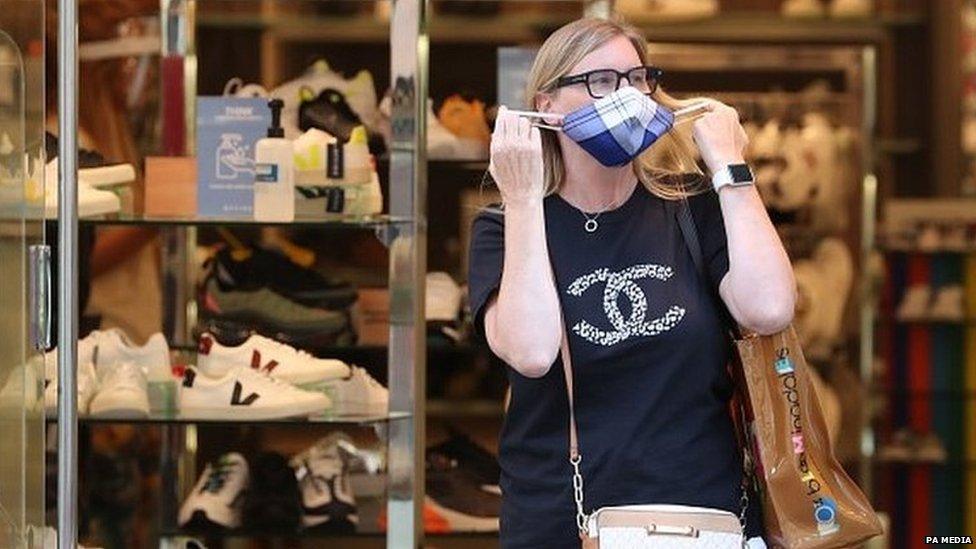Indyref2: Scottish battle lines drawn again in run-up to May's election
- Published
- comments

The government has suggested it will reject calls for another referendum but unionists worry how sustainable this is
Supporters of the Union are nervous.
A number of recent polls on Scottish independence suggest there is now a majority in support of leaving the UK. The SNP have started calling independence the "settled will of the Scottish people".
The issue is set to dominate the run-up to the Holyrood election in May. Polls also suggest the SNP are on for a comfortable win - which will make calls for another vote on independence even louder.
In this situation, the SNP will have gone into the election arguing it should have the power to hold another referendum - and will have won.
So what is Westminster going to do? The immediate answer is a simple one. It will say no.
Last week the Scottish Secretary Alister Jack told the BBC there shouldn't be another referendum for a generation - adding that could be as long as 40 years.
Although some Tories have discussed the prospect of a snap referendum - both publicly and privately - senior figures in government intend on rejecting calls for indyref2 next year, whatever the outcome of the Holyrood vote.
And as things stand, they hold a trump card.
Legal process
Although some in the SNP are itching for a Plan B (which we'll revisit in the coming weeks) - Nicola Sturgeon wants an agreed, legal process with Westminster so that if Scotland votes for it, independence is seen as legitimate.
But the debate doesn't end there. As ever with politics - the full story is more complicated.
In the corridors of power in London, some believe unionists are losing the argument. They accept polls are likely to get worse for them - with support for independence increasing in the coming months.
They accept many "soft unionists" are unhappy with Brexit and the way the UK government has pursued it.

Opinion polls suggest growing support for independence but an SNP majority in May's election is far from guaranteed
Some acknowledge privately that Nicola Sturgeon's handling of the coronavirus crisis has made her more popular - and impressed Scots who may have not been convinced about independence before.
Sir John Major - who has long warned Brexit would make independence more likely - has argued that saying no to another referendum after an SNP victory may well help their case.
He suggested two referendums; one on independence and one on the terms. His intervention shows some in Conservative circles are thinking about what to do next.
The fear that saying no is unsustainable is shared by some in government.
They worry that if the SNP wins comfortably in May, refusing to engage on an independence vote will look anti-democratic - alienating Scots who voted against independence in 2014 but are now on the fence.
Some hope that by stopping the SNP winning a majority - which is a big ask under the electoral system anyway - they can argue the mandate isn't there.
But that argument will be a lot harder to make if the SNP do dominate in May - and independence supporters already argue even if they don't get over the line and win 50% of seats, Holyrood could still vote in favour of another referendum with the support of the Scottish Greens.
Strength and certainty
The government's strategy is focussed on telling Scottish voters more about its role in Scottish life.
It wants to persuade people of the "broad shoulders of the union" - pointing to the huge financial support the Treasury has provided during the Covid crisis and arguing that wouldn't be possible as an independent country (an argument rubbished by the SNP, who believe the Treasury has made decisions based on England rather than the needs of parts of the union).

The government is keen to stress the practical economic benefits that Scotland derives from the union
Senior figures in government believe that the economic picture in May is likely to be grim. Unemployment could be rising, the health picture may still be uncertain.
They think people will want certainty and will argue staying in the UK can provide it. Constitutional matters, they argue, will be far from top of people's minds.
Even though people in government acknowledge support for independence is increasing, they believe it's "soft".
Internal polling suggests people have other priorities and even among those who believe another referendum should happen there is a view that it's not the immediate priority.
The last time the Scottish government called for the power to hold another referendum, after the Brexit vote, Theresa May's argument was a nuanced no - "now is not the time".
That answer - or some form of it - is likely to be the same next year if the SNP do win power again.
But more than last time, there is nervousness about how that answer will go down - and how long it can be sustained.